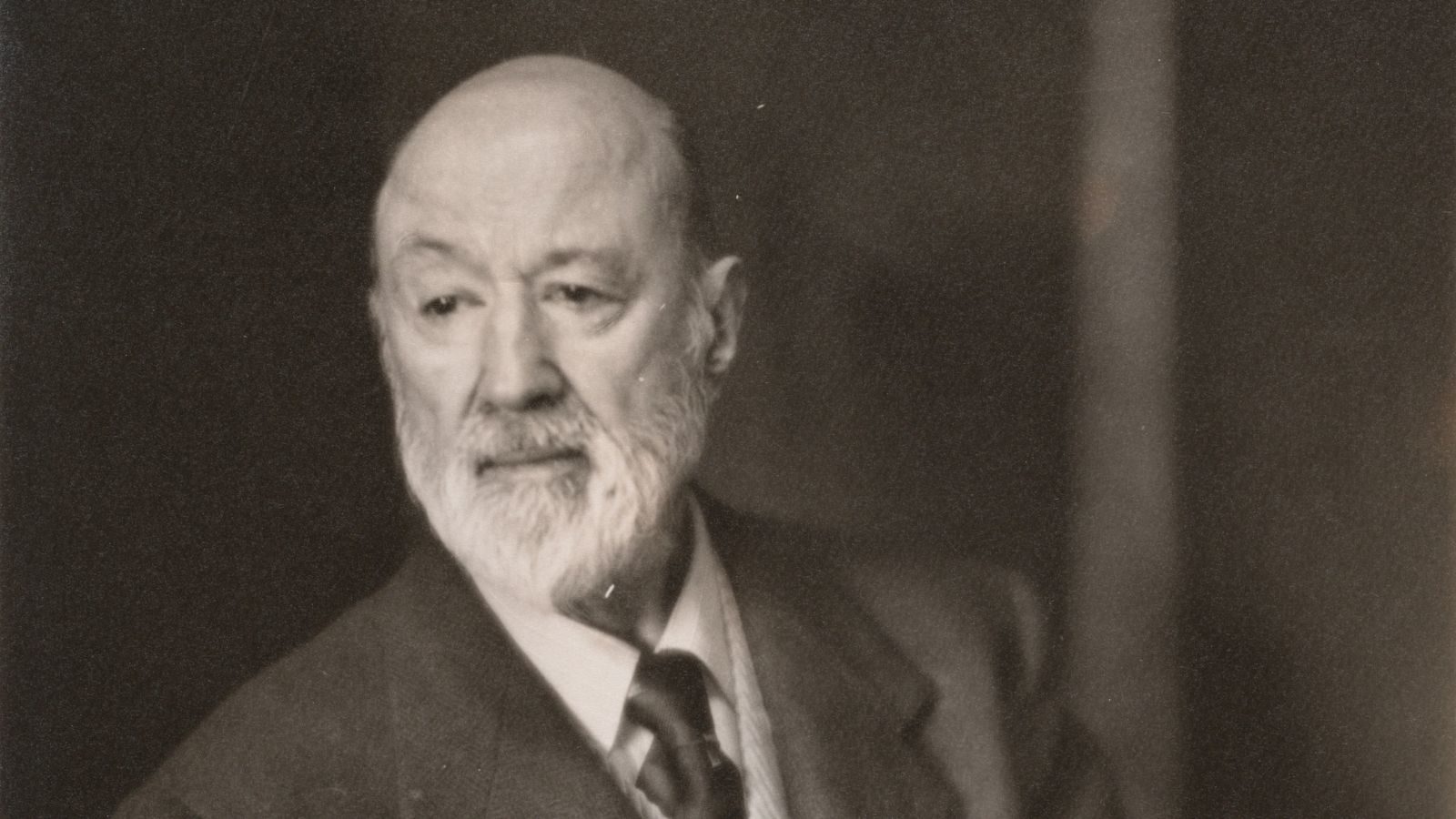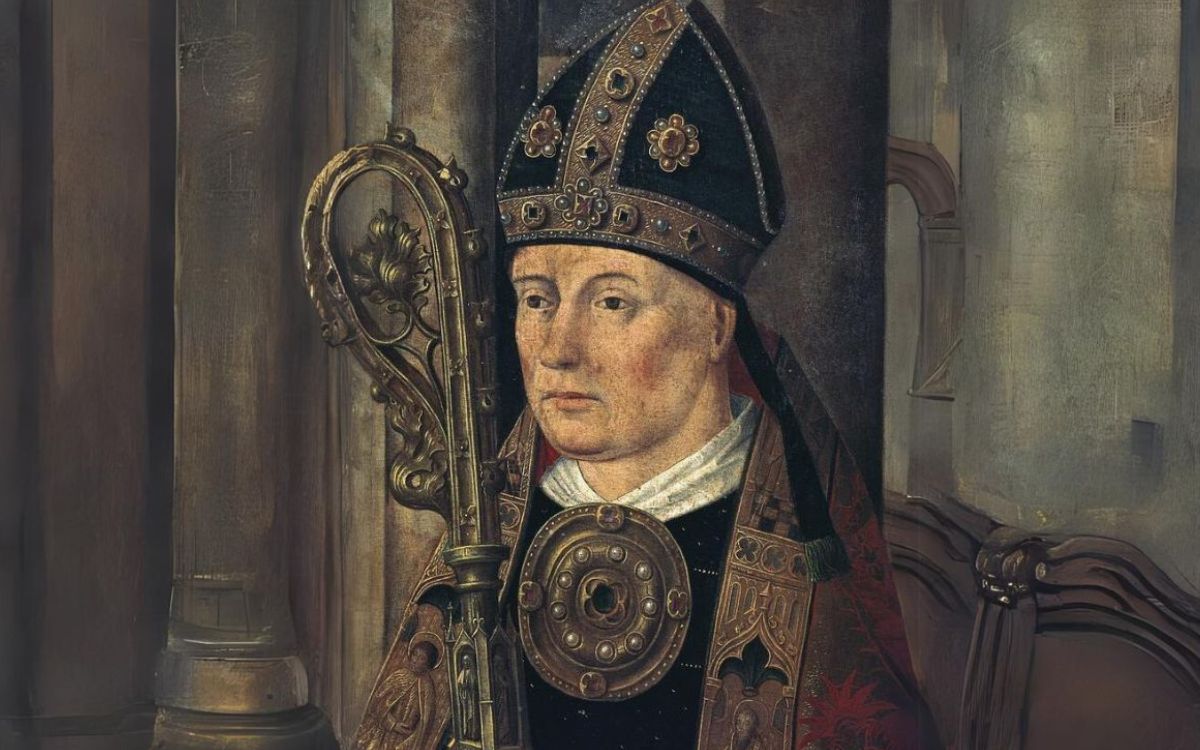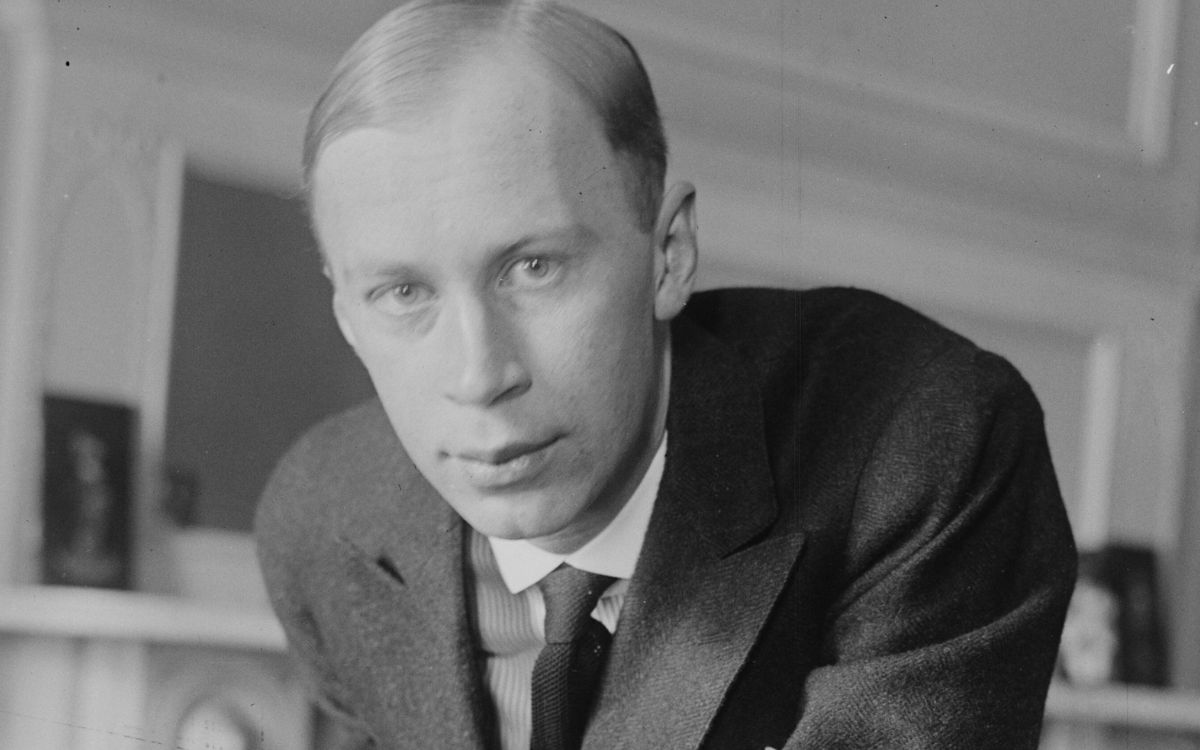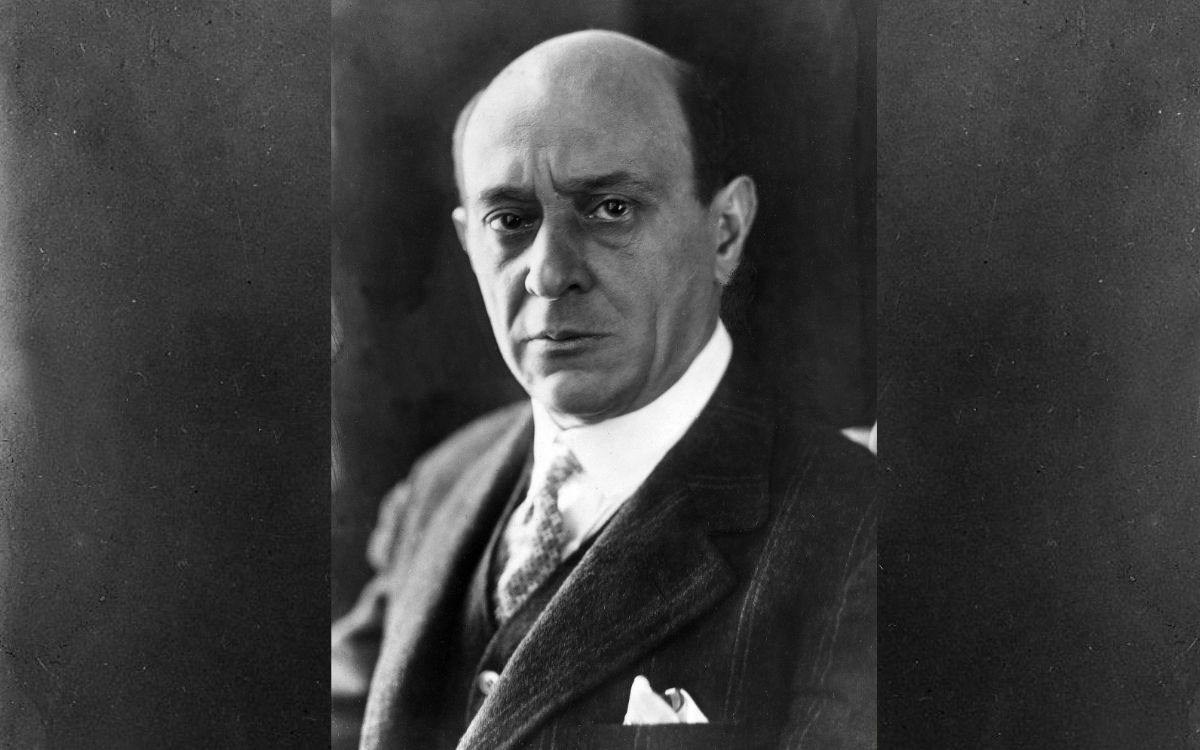Home>Production & Technology>Composer>Which Condition Profoundly Affected Beethoven’s Work As A Composer?
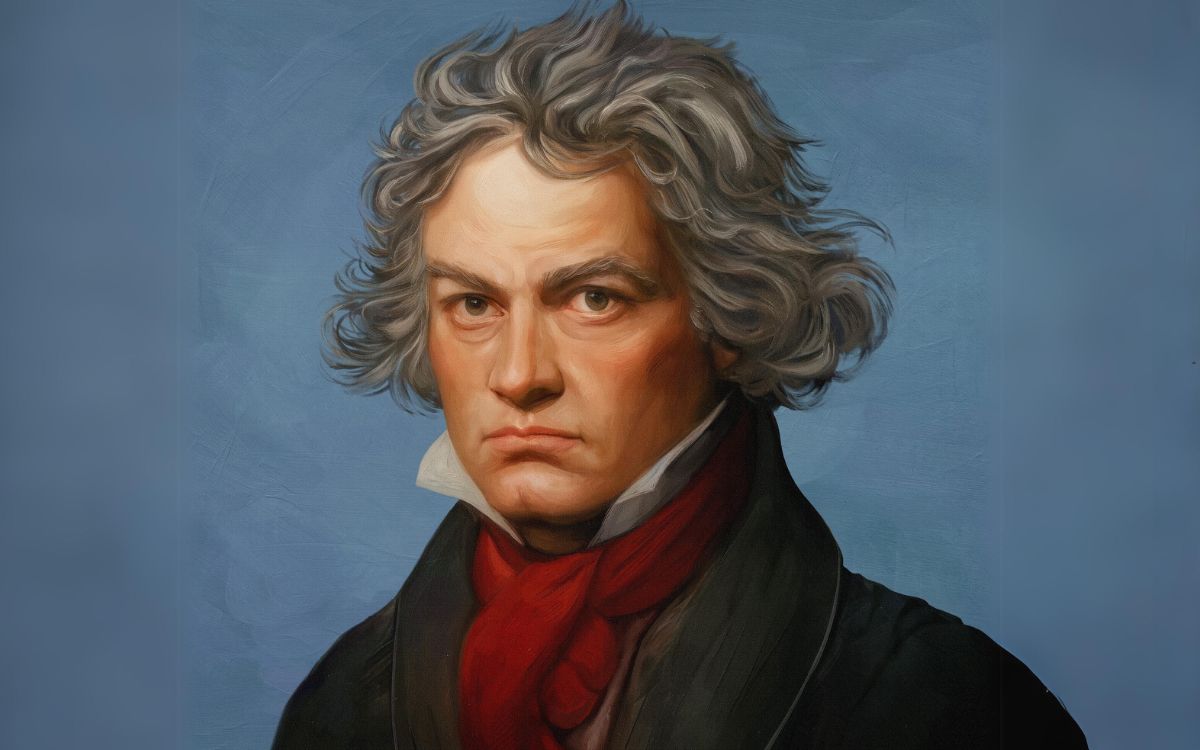

Composer
Which Condition Profoundly Affected Beethoven’s Work As A Composer?
Modified: January 22, 2024
Discover the condition that had a profound impact on composer Beethoven's work and shaped his musical genius.
(Many of the links in this article redirect to a specific reviewed product. Your purchase of these products through affiliate links helps to generate commission for AudioLover.com, at no extra cost. Learn more)
Table of Contents
Introduction
Beethoven, one of the most celebrated composers in history, created some of the most memorable and influential works of classical music. His compositions, ranging from symphonies to piano sonatas, are marked by their emotional depth and technical brilliance. However, there was a condition that profoundly affected Beethoven’s work as a composer. This condition was none other than his gradual and debilitating hearing loss.
In this article, we will delve into Beethoven’s life, exploring the impact of his hearing loss on his musical journey. We will discuss the challenges he faced, both physically and emotionally, and how they shaped his compositions. From his early life and career to his personal struggles and relationships, it is evident that Beethoven’s hearing loss left an indelible mark on his artistry and creative process.
By understanding the profound impact of Beethoven’s hearing loss, we can gain a deeper appreciation for his resilience and ability to overcome adversity. Let us embark on this journey to uncover the multifaceted nature of Beethoven’s life and the enduring legacy he left behind.
Beethoven’s Early Life and Career
Ludwig van Beethoven was born in December 1770 in Bonn, Germany. He showed prodigious musical talent from a young age and was quickly recognized as a musical prodigy. His father, who recognized his son’s potential, began teaching him the piano and violin at a tender age.
At the age of 17, Beethoven moved to Vienna, the musical capital of Europe, in pursuit of further musical training and opportunities. There, he studied composition with renowned musicians like Joseph Haydn and Johann Albrechtsberger, honing his craft and expanding his musical horizons.
During his early years in Vienna, Beethoven impressed audiences and patrons with his virtuosity and originality. He quickly established himself as a talented pianist and a promising composer. His early compositions, such as his Piano Sonata No. 8 “Pathétique” and Symphony No. 1, showcased his mastery of form and his distinctive musical voice.
Beethoven’s rise to fame was not without its challenges. While he gained recognition for his compositions and performances, he was also grappling with the gradual onset of hearing loss. The first signs of his hearing difficulties appeared in his late twenties, and the condition would worsen over time.
Despite this setback, Beethoven persevered in his musical career. He continued to compose and perform, even as his hearing deteriorated. It is during this period that some of his most iconic works, such as his Fifth Symphony and Piano Concerto No. 5 “Emperor,” were created. The emotional intensity and innovative musical structure of these compositions solidified Beethoven’s reputation as a genius in the classical music world.
Beethoven’s early life and career lay the foundation for the challenges he would face in the years to come. His determination and unwavering passion for music set him apart as a composer and continue to inspire musicians and music lovers around the world.
Beethoven’s Health Issues
In addition to his progressive hearing loss, Beethoven faced various health issues throughout his life. These health challenges deeply impacted his physical well-being and added to the difficulties he encountered as a composer.
One of the most significant health issues Beethoven grappled with was his struggle with chronic illnesses, including digestive disorders and respiratory ailments. These conditions often left him in constant pain and discomfort, affecting his ability to focus on his work and pursue his creative endeavors.
Additionally, Beethoven’s health issues extended beyond physical ailments. He also battled emotional and psychological struggles, which greatly influenced his music. He was known to experience bouts of depression, anxiety, and mood swings, which were compounded by his declining hearing and the societal pressure to create exceptional compositions.
Despite these challenges, Beethoven’s determination and dedication to his craft never wavered. He pushed through the physical and emotional obstacles he faced, channeling his pain and turmoil into his music. By transforming his inner turmoil into musical expressions, Beethoven provided a cathartic release for both himself and his listeners.
Understanding Beethoven’s health issues provides a crucial context for appreciating the depth and intensity of his compositions. His personal struggles added a layer of complexity and raw emotion to his music, allowing him to create profoundly moving and timeless works.
As we explore Beethoven’s life and work, it becomes clear that his health issues were not mere obstacles but integral elements of his artistic journey. They shaped his experiences, influenced his perspective, and ultimately contributed to the unparalleled depth and power of his compositions.
Beethoven’s Progressive Hearing Loss
One of the most significant challenges Beethoven faced in his life was his progressive hearing loss. The exact cause of his hearing loss remains unknown, with theories ranging from hereditary factors to a childhood bout of smallpox. Regardless of the cause, the impact on his musical career was profound.
Beethoven first began noticing symptoms of hearing loss in his late twenties. Initially, he experienced a ringing sensation and difficulty hearing high-frequency sounds. Over time, his condition worsened, eventually leading to near-total deafness. By the end of his life, he could only hear faint sounds and vibrations.
The progressive nature of Beethoven’s hearing loss deeply affected his personal and professional life. As a musician, his ability to perform and experience music changed dramatically. He could no longer rely on his own hearing to gauge the sound and quality of his compositions.
However, Beethoven’s unique musical genius and determination allowed him to continue composing despite his hearing limitations. He relied on the vibrations of the piano’s keys and the help of others to transcribe his ideas onto paper. His compositions, though imagined in his mind, took form through his ability to manipulate musical ideas intellectually rather than audibly.
Beethoven’s hearing loss forced him to adapt, experiment, and push the boundaries of traditional composition techniques. His later works showcase his exploration of unconventional structures, intensified emotional expression, and innovative harmonic language.
Beethoven’s journey through hearing loss is evident in his famous Ninth Symphony. While completely deaf during its composition, he conducted the premiere and received thunderous applause from the audience. It is said that when he turned from the orchestra to face the audience, he was unaware of their applause, only to be turned around by one of the soloists, so that he could see the enthusiastic response he had evoked.
Beethoven’s progressive hearing loss was undeniably a profound challenge in his life, but it did not deter him from creating some of the most influential and iconic music in history. His ability to transcend his own limitations serves as an inspiration to artists and individuals facing adversity, teaching us that true greatness lies in the spirit and determination to overcome obstacles.
Impact of Hearing Loss on Beethoven’s Work
Beethoven’s progressive hearing loss had a significant impact on his approach to composition and the overall character of his music. As his ability to hear diminish, he had to rely on his inner musical imagination and memory to create and shape his compositions. This profound shift in his creative process resulted in several notable changes in his work.
Firstly, Beethoven’s hearing loss influenced the emotional depth and intensity of his compositions. Unable to fully experience the sounds and dynamics of his music, he relied on his inner emotional landscape to guide his compositions. This led to an unparalleled depth and raw emotional expression that resonates with listeners to this day. His works, such as the famous Symphony No. 5, are imbued with a sense of struggle, triumph, and profound human emotion.
Secondly, Beethoven’s hearing loss pushed him to explore new ways of composing and experimenting with musical ideas. Unable to rely on his ears to assess the sound and quality of his compositions, he became more reliant on the power of his creative imagination. This resulted in groundbreaking innovations in form, structure, and harmonic language. His music became more daring, bold, and unpredictable, challenging the conventions of the time and paving the way for future generations of composers.
Thirdly, Beethoven’s hearing loss influenced the physicality of his compositions. Without the ability to hear the subtleties of his music, he focused more on the tactile experience of playing the piano. He emphasized the physicality of the instrument, exploring its full range of dynamics and power. This can be heard in his piano sonatas, where the contrast between delicate passages and thunderous chords creates a visceral impact on the listener.
Lastly, the impact of Beethoven’s hearing loss on his work can be seen in his use of silence and pauses as a dramatic tool. Unable to hear the sound fade away, he used silence strategically to create tension and anticipation. These moments of silence add a heightened sense of drama and allow the listener to reflect on the emotional weight of the music.
Beethoven’s hearing loss was undeniably a challenging aspect of his life, but it became an integral part of his creative process and the unique character of his music. It forced him to approach composition in a profoundly different way, resulting in works that continue to inspire and move audiences around the world.
Beethoven’s Emotional and Psychological Struggles
Beethoven’s life was fraught with emotional and psychological struggles, which deeply influenced his work as a composer. These inner battles shaped the themes and emotional intensity of his compositions, making his music a reflection of his own turbulent inner world.
One of the key struggles Beethoven faced was his intense desire for personal and artistic freedom. He expressed a strong need to break free from social conventions and norms, striving to create music that was true to his own artistic vision. This desire for personal freedom often clashed with the expectations and demands of patrons and society, leading to inner conflicts and frustrations.
Another significant struggle Beethoven faced was his battle with loneliness and isolation. As his hearing deteriorated, he became increasingly isolated from the world around him. Communication became difficult, and he had to rely on written correspondence to interact with others. This sense of isolation, combined with his personal idiosyncrasies, contributed to a deep sense of loneliness that permeated his life and work.
Furthermore, Beethoven’s fiery temperament and volatile personality added to his emotional struggles. He had a quick temper and was known for his passionate outbursts and confrontations. These emotional highs and lows manifested in his music, lending an intense and often dramatic quality to his compositions.
Beethoven’s emotional and psychological struggles were also intertwined with his own personal search for meaning and purpose in life. He grappled with existential questions and pondered the nature of human existence. This quest for deeper understanding is reflected in the philosophical and introspective nature of his compositions, particularly in his late works.
Despite the immense challenges and emotional turmoil he faced, Beethoven’s struggles became a wellspring of creative inspiration. His music became a means of expressing and processing his own emotions and inner conflicts. It served as a cathartic outlet and allowed him to channel his intense emotions into art, creating profoundly moving and powerful compositions.
Beethoven’s emotional and psychological struggles provide a window into the complex and nuanced nature of his artistry. They give depth and humanity to his music, inviting listeners to connect with the raw emotions and profound introspection that define his compositions.
Beethoven’s Personal Relationships and Loneliness
Beethoven’s personal relationships played a pivotal role in his life, contributing to both moments of joy and profound loneliness. While he had a strong desire for human connection, his relationships were often marked by difficulties and a sense of isolation.
One significant aspect of Beethoven’s personal life was his strained relationship with his family, particularly his father. Beethoven’s father, an alcoholic, was often financially dependent on him, placing a burden on their relationship. This strained dynamic, coupled with the responsibility of caring for his younger siblings after their mother’s death, added to Beethoven’s sense of duty and contributed to his overarching sense of loneliness.
Beethoven’s romantic relationships were also complex and tumultuous. He longed for a deep and fulfilling companionship but struggled to find it. It is believed that he fell in love with several women throughout his life, but these relationships were either unrequited or faced societal obstacles, such as class differences. The most notable was his love for the “Immortal Beloved,” an unidentified woman to whom he wrote passionate and heartfelt letters. The exact identity of the “Immortal Beloved” remains a mystery, adding to the sense of longing and unrequited love that permeates Beethoven’s personal correspondence.
As Beethoven’s hearing loss worsened, his interactions with others became increasingly challenging. Communication was difficult, leading to misunderstandings and frustrations. This created a sense of isolation and further deepened his feelings of loneliness. Despite his desire for companionship, he often withdrew from social situations, preferring to spend time alone, immersed in his music and thoughts.
However, it is important to note that Beethoven did have a supportive circle of friends and patrons who recognized his talent and provided emotional and financial support. These individuals, such as Anton Schindler and Archduke Rudolph, played instrumental roles in his life, offering companionship and encouragement during his most difficult moments. Their presence, though limited, provided Beethoven with a sense of connection and comfort.
The loneliness that pervaded Beethoven’s personal life found solace in his music. Through his compositions, he was able to express the depths of his emotions and convey the universal human experience of longing and isolation. His music became a source of solace and connection, bridging the gap between his inner world and the outside world.
Beethoven’s personal relationships and the loneliness he experienced shaped his perspective and had a profound impact on his music. They fuelled his creative process and enabled him to create works of unparalleled emotional depth and introspection that resonate with audiences to this day.
Beethoven’s Political and Social Influences
Beethoven lived during a time of great political and social turmoil, and these external influences left a lasting impact on his life and work as a composer. He witnessed firsthand the dramatic changes and upheavals of the Napoleonic era, which shaped his artistic expression and fueled his passion for freedom and justice.
One of the most significant political influences on Beethoven was the French Revolution. The ideals of liberty, equality, and fraternity resonated deeply with him, and he saw in the revolution a reflection of his own desire for personal and artistic freedom. He fervently believed in the power of music to inspire and uplift, and he used his compositions to convey messages of humanism and social change.
Beethoven’s Symphony No. 3, known as the “Eroica,” embodies his commitment to these ideals. Originally dedicated to Napoleon Bonaparte, whom Beethoven admired as a champion of the people, the symphony symbolizes heroism and calls for the triumph of liberty over tyranny. When Napoleon declared himself Emperor, Beethoven, disillusioned by his actions, scratched out the dedication, exemplifying his unwavering belief in the power of human ideals above individual personalities.
In addition to political influences, Beethoven was also impacted by the social climate of his time. He encountered and experienced the societal barriers and hierarchies that were prevalent in 18th century Europe. As a composer of lower social status, he often faced challenges in garnering the same recognition and opportunities as his aristocratic contemporaries.
Despite these challenges, Beethoven remained steadfast in his belief that music was a powerful tool for social change. His compositions, such as the “Ode to Joy” from his Ninth Symphony, expressed a vision of universal brotherhood and unity. It became an anthem for humanity, advocating for the bridging of social divides and the pursuit of a more egalitarian society.
Beethoven’s political and social influences were not confined to his compositions alone. He actively participated in civic activities and supported causes aligned with his beliefs. He expressed his views through public speeches and writings, calling for freedom, justice, and equality.
Beethoven’s music and his commitment to social causes continue to inspire generations of musicians and activists. His belief in the transformative power of art and his unwavering dedication to his principles left an indelible mark not only on the world of music but also on the societal and political landscape of his time.
Conclusion
The life and work of Ludwig van Beethoven were shaped by a multitude of challenges, triumphs, and personal struggles. His progressive hearing loss, health issues, emotional turmoil, and sense of loneliness greatly influenced his compositions and artistic journey.
Beethoven’s hearing loss forced him to adapt and find new ways to express his musical ideas. It led him to explore uncharted territories in composition, resulting in groundbreaking innovations and deeply emotional music that continues to resonate with audiences worldwide.
His personal and social relationships, though often complicated and challenging, provided both inspiration and moments of solitude. Beethoven’s music became a means of communication, a solace for his own loneliness, and a way to evoke profound emotions in others.
Beethoven’s political and social influences, particularly the ideals of the French Revolution, shaped his perspective and added a layer of social consciousness to his music. He believed in the power of art to inspire change and advocated for freedom, justice, and humanism through his compositions.
In conclusion, Beethoven’s life was a testament to resilience and the transformative power of music. His ability to overcome physical and emotional challenges, along with his unwavering commitment to artistic integrity, allowed him to create music that transcends time and speaks to the depths of the human experience.
Today, Beethoven’s compositions continue to inspire and captivate audiences, reminding us of the indomitable spirit of the human soul and the power of artistic expression even in the face of adversity. His enduring legacy as one of history’s greatest composers serves as a testament to the strength of the human spirit and the timeless nature of great art.

